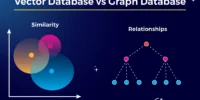Welcome to the era of Agriculture 2.0, where the synergy of Artificial Intelligence (AI) and farming practices is transforming the landscape of agriculture. In this digital revolution, farmers are leveraging AI technologies to enhance efficiency, optimize resources, and boost crop yields. Let’s explore quick tips for modernizing farming with AI.
1. Crop Health Diagnostics: AI-Powered Precision Agriculture
Implement AI-driven crop health diagnostics to monitor and analyze the well-being of your crops. Use advanced sensors and imaging technology to capture real-time data from the fields. AI algorithms can then analyze this data, detecting early signs of diseases, nutrient deficiencies, or pest infestations. Precision agriculture enables targeted interventions, optimizing crop health and increasing yields.
2. Smart Irrigation Strategies: Watering with Precision
Optimize water usage with AI-driven smart irrigation strategies. Utilize soil moisture sensors and weather data to determine precise irrigation needs. AI algorithms can analyze this information in real-time, ensuring that crops receive the right amount of water at the right time. Smart irrigation not only conserves water but also enhances crop growth and resource efficiency.
3. Crop Planning Algorithms: Tailoring Planting to Perfection
Deploy AI-driven crop planning algorithms to optimize planting schedules and layouts. Consider factors such as soil quality, weather patterns, and historical yield data. AI can analyze this information to recommend optimal planting times and arrangements, maximizing crop yield potential. Tailoring your planting strategy with AI insights ensures efficient land utilization and improved harvests.
4. Drone Surveillance Intelligence: Aerial Insights for Agribusiness
Embrace drone surveillance intelligence for comprehensive aerial insights into your agricultural operations. Drones equipped with AI-powered cameras can monitor large areas of farmland efficiently. From crop health assessments to pest detection, these aerial insights provide a holistic view of your farm. Integrating drone technology with AI enhances decision-making and resource allocation for improved productivity.
5. Robotic Harvesting Precision: Automated Efficiency in the Fields
Integrate AI into robotic harvesting systems for automated efficiency in the fields. AI-powered robots can identify ripe crops, pick them with precision, and optimize the harvesting process. This reduces the reliance on manual labor, increases efficiency, and ensures a timely and accurate harvest, contributing to overall farm productivity.
6. Weather Forecasting Integration: Mitigating Risks with AI-Enhanced Predictions ⛈️
Enhance risk management with AI-integrated weather forecasting. AI algorithms can analyze historical weather patterns and real-time data to provide accurate and timely forecasts. Farmers can proactively plan for adverse weather conditions, minimize risks, and optimize their farming practices based on predictive insights.
7. Data Security Harvest: Safeguarding AI-Generated Agricultural Data
Prioritize data security to safeguard the wealth of information generated by AI applications in agriculture. Implement robust cybersecurity measures to protect sensitive farm data, ensuring the privacy and integrity of AI-generated insights. Secure data practices build trust in adopting AI technologies for modernizing farming.
Conclusion: Sowing the Seeds of AI Advancements in Agriculture
The integration of AI in agriculture is not just a technological advancement; it’s a transformative force shaping the future of farming. By adopting these quick tips, farmers can cultivate innovation, increase efficiency, and contribute to sustainable and modernized agriculture. Let’s sow the seeds of AI advancements and harvest a future where technology and agriculture coalesce for greater prosperity.








